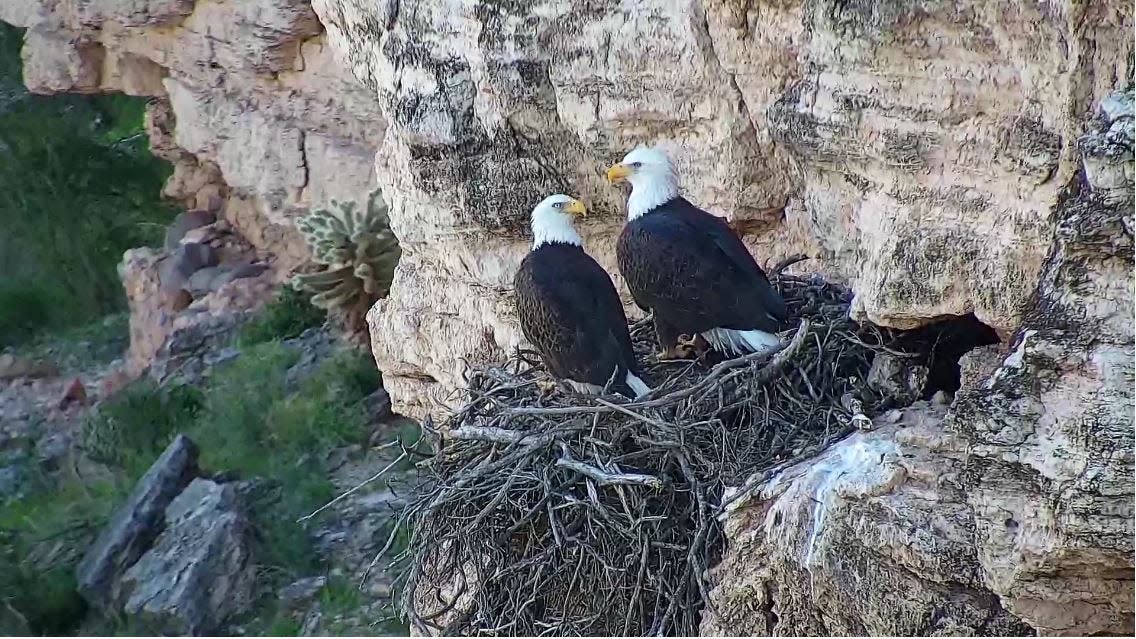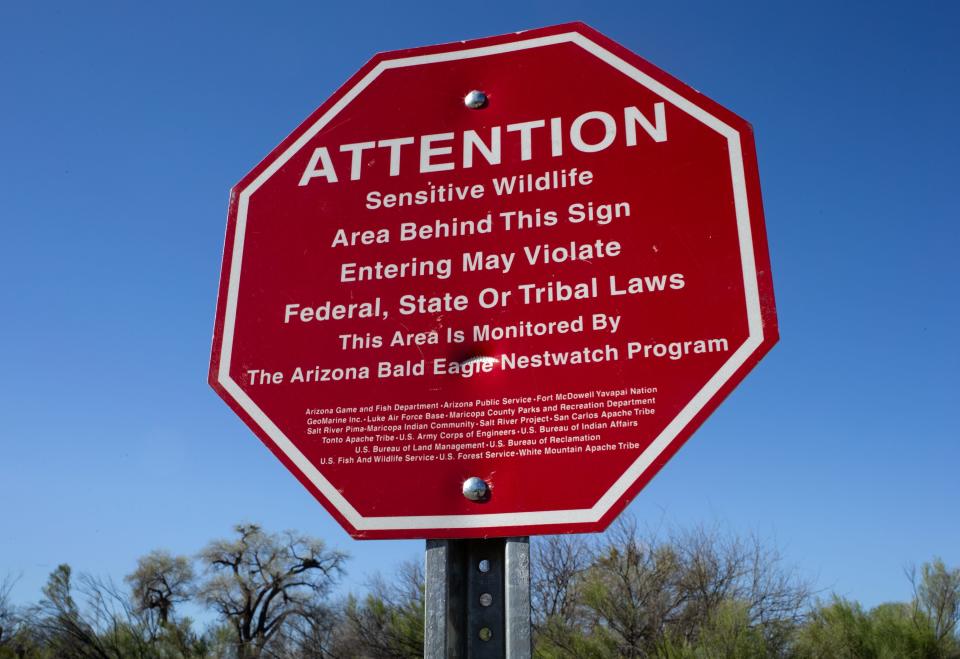State wildlife officials close parts of public land to establish bald eagle breeding sites

The Arizona Game and Fish Department will start to close some parts of public land and water areas for bald eagle breeding sites through the spring.
Outdoor recreationists and those with the potential to come in contact with a nest are encouraged by the AZGFD to not disturb any of the 97 eagle breeding areas.
The bald eagle's diet consists mostly of fish, so they nest near bodies of water, with some of the most densely packed sites near the lower Verde River. Across the state, areas adjacent to or surrounding these breeding grounds will be closed to visitors.
"The birds nest, forage and roost at rivers and lakes that are also popular recreation spots. That's why we must be vigilant to help protect the birds and ensure their populations statewide continue to flourish," said Kenneth 'Tuk' Jacobson, bald eagle management coordinator. "That success wouldn't be possible without the cooperation of outdoor recreationists who respect the closures during the breeding season."

In the 2023 breeding season, 76 young eagles hatched, and 65 successfully completed their first flight, a process known as fledging. Typically, female bald eagles will lay one to three eggs each year, and they hatch in approximately 35 days.
70% of these hatchlings survive their first year of life.
Even though bald eagles were removed from the threatened and endangered species list in 2007, they are still protected under the Bald and Golden Eagle Protection Act. Penalties for violating this act vary, ranging from a misdemeanor charge with a maximum penalty of one year in prison and a $100,000 fine, to a felony offense with a sentence of two years in prison and a $250,000 fine.
Outdoor recreationists should avoid the areas closed for breeding sites, and pilots are reminded to fly at the FAA-recommended 2,000 feet above ground levels when flying over eagle habitats.
Drones and paragliders are also urged to completely avoid these areas, as eagles are highly sensitive to low-flying aircraft. Even brief disturbances can result in nesting failure. Eagles may perceive loud equipment as a threat and attempt to defend their nest, risking extreme fatigue, injury, or death.
To report harassment or shooting of bald eagles, call the Arizona Game and Fish Operation Game Thief Hotline at 800-352-0700 or U.S. Fish and Wildlife Service Law Enforcement at 480-967-7900.
This article originally appeared on Arizona Republic: Arizona Game and Fish close public land areas for bald eagle breeding

